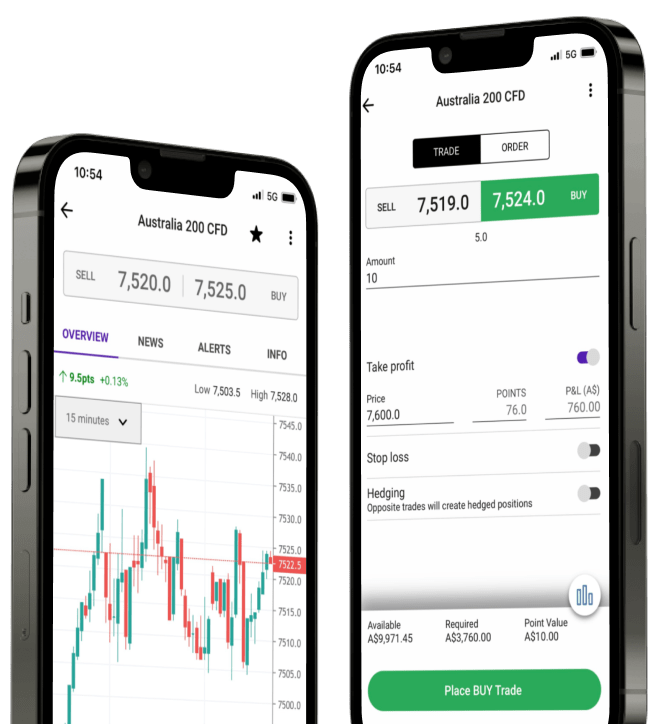
CFD trading on Solana
Trade CFDs on SOL price movements with a City Index account, regulated in Australia since 2006.
Trade Solana with CFDs
Enjoy tight spreads and low margins when you trade CFDs on Solana with City Index.

Live Pricing
Solana market information
† May change due to market conditions.
‡ trading hours on cryptocurrencies are 08:00 Mon - 08:00 Sat (AEDT)
* Please note margin requirements can vary depending on the risks associated with the underlying market. For details of the exact margin requirements on all of our markets, please view the market information sheet in the platform.
Speculate on the Solana price without the need to own the cryptocurrency or have a digital/hardware wallet
Trade Solana CFDs the same way you would trade commodities, shares or indices
Experience exposure to the performance of SOL with a trusted, global broker, regulated in Australia since 2006
Get Solana insight and the latest news from our Reuters feed
Customisable charts
16 chart types and 80+ indicators to boost your technical skills
Award-winning platforms
Technology designed to suit you, whatever your level of expertise
Trading strategies
Elevate your insight with our fundamental and technical trading techniques
From cryptocurrencies to indices, shares, forex and beyond, discover the latest news and trade ideas from our team of expert analysts and market writers.
New to trading? Start with a risk-free demo account.

Solana CFD trading FAQs
What are cryptocurrencies?
Cryptocurrencies are digital tokens based on blockchain technology that act as a virtual currency. Many cryptocurrencies are mined into existence through the ‘Proof of Work’ system, involving the solving of complicated mathematical puzzles by high-powered computing software, with a cryptocurrency token made available to the owner as a reward.
However, a newer system known as ‘Proof of Stake’ involves contributors staking their own cryptocurrency in exchange for a chance to validate new transactions, update the blockchain, and earn a reward. Ethereum, for example, is expected to move to the Proof of Stake model in 2022.
Most cryptocurrencies are decentralised, which means that they are not connected to or affected by an authority such as a government or central bank.
Can I trade other cryptocurrencies with City Index?
Yes, you can trade a range of cryptocurrencies with City Index, such as Bitcoin, Ethereum, Ripple and Litecoin, available at a margin rate of 50%. Click here to find out more about the cryptocurrencies we offer.
Do I have to trade a whole Solana?
No, one of the main benefits of Solana CFDs is that you can trade fractional amounts and not an entire SOL per transaction.
How old is Solana?
Solana was founded in 2018 by Anatoly Yakovenko.











